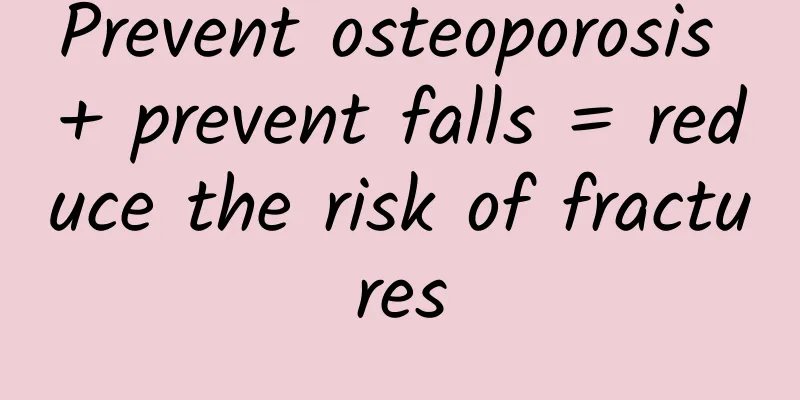Maintenance methods for hysterectomy

|
In modern society, middle-aged women not only have to develop their careers but also have to take care of their families and children, and they are under pressure from all aspects of their careers and family. These pressures can easily lead to depression in women. Coupled with staying up late and unhealthy diet, which increases the secretion of estrogen in the body, they are likely to develop uterine fibroids. Many readers are concerned about some maintenance methods after hysterectomy. Let’s learn about it below. Six weeks after total hysterectomy, the patient should go to the hospital for a follow-up examination to understand the wound healing situation. Sexual intercourse is generally prohibited for 3 months after surgery to facilitate wound recovery. You can resume your sex life afterwards. In clinical practice, subtotal hysterectomy is often used for young women and those who have no lesions in cervical cancer prevention examinations. Since the cervix is retained, the vagina still maintains its original depth, and the feeling during sexual intercourse is better than that of a total hysterectomy. However, regular cervical cancer prevention smear examinations should be performed to prevent the occurrence of cervical cancer and stump cancer. If necessary, use hormone replacement or apply medications such as cod liver oil ointment to promote a harmonious sexual life. Pay attention to enhancing nutrition, proper physical exercise, and doing couples' health exercises to increase the body's resistance, which is also beneficial to postoperative physical recovery and harmonious sexual life. diet: 1. The diet should be light and avoid eating irritating foods such as mutton, shrimp, crab, eel, salted fish, and black fish. 2. Avoid spicy foods and drinks such as chili peppers, peppercorns, raw onions, raw garlic, and white wine. 3. Avoid eating foods that are hot, coagulant, or contain hormones, such as longan, red dates, donkey-hide gelatin, and royal jelly. 4. Eat more lean meat, chicken, eggs, quail eggs, crucian carp, turtle, white fish, cabbage, asparagus, celery, spinach, cucumber, winter melon, mushrooms, tofu, kelp, seaweed, fruits, etc. According to relevant research, women's ovarian function will be affected to a certain extent within 3 to 5 years after hysterectomy. Some patients will experience symptoms similar to menopause, such as sweating, becoming more irritable than before, and vaginal dryness. When these symptoms occur, in addition to keeping a happy and relaxed mood, it is recommended to go to the hospital for examination and treatment if necessary. |
<<: What should I eat to maintain my health after hysterectomy?
>>: How to maintain your health after hysterectomy
Recommend
Say "no" to respiratory diseases during the Frost Descent season! You must read this practical guide!
Frost Descent is the eighteenth solar term in the...
26 weeks pregnant, stomach pain
After becoming pregnant, pregnant women must pay ...
What should I do if I have hemorrhoids during my fifth month of pregnancy?
Women will have more physical symptoms during pre...
Women's lower abdomen distension
Abdominal distension is a common symptom in women...
Is Inner Mongolia high in altitude? Will there be altitude sickness? What is the relationship between Mongolia and Inner Mongolia?
Recently, people often ask if there is altitude s...
Can the warm nest recover if it ages prematurely?
After premature ovarian failure occurs, many fema...
After the Spring Festival, check whether your blood pressure, blood sugar, blood lipids, weight and heart rate are at ideal levels?
The New Year for office workers is over, and it’s...
Differences between men and women at 25 weeks of pregnancy
As the baby in the pregnant woman's belly gro...
Is it feasible to lose 30 pounds in a month? No matter how urgent your mood is, it is not advisable to lose weight quickly!
gossip Follow the online method of losing 30 poun...
Why do women always have backache?
We all know that women experience back pain durin...
Men need more care, and the health guide will help you pass the "male" test.
Men need to bear more responsibilities and pressu...
What are the effects of cervical mucosal shedding?
The uterus and other tissues are reproductive org...
Taking Jinfeng Pills made my endometrium thicker
When women reach a certain age, their ovaries beg...









